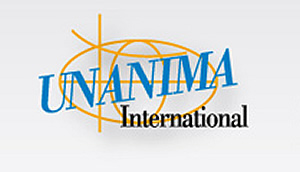Sister Michele worked with other religious NGOs while serving an internship with UNANIMA in the first quarter of 2011, dealing with global water resources and climate change. Sister Michele has a doctorate in developmental biology from the University of Notre Dame, and has worked with local water quality groups for 25 years.
The NGOs speak on the floor of the United Nations, and Sister Michele was offered a chance to speak during her internship before the Commission on the Status of Women concerning teaching science to girls. “When I got my U.N. pass, I felt like I’d been given the keys to the Emerald City of Oz,” she said.
“Three things appealed to me about the job,” Sister Michele said. “I loved working at the U.N., it felt like the center of the universe. You could have an effect in so many ways. I liked working with other religious NGOs, and I liked working with other religious communities. It was like my time with the (Leadership Conference of Women Religious).”

“One of the search committee members asked if I had any experience working on issues concerning women and children,” Sister Michele said with a smile. A subset of the Ursuline Sisters of Mount Saint Joseph mission statement is their focus on “freeing and nurturing women and children.”
Sister Michele received unanimous and excited support from the five-member Ursuline leadership Council, said Sister Sharon Sullivan, congregational leader. A sister to replace Sister Michele as the Ursuline board representative has not been selected yet, Sister Sharon said. The UNANIMA board meets twice a year, the next time in the spring.
Sister Michele’s last day at Brescia is Dec. 9, and she leaves for New York on Dec. 13. The date is significant to Sister Michele, because it was Dec. 13, 2001 when representatives of the seven communities to form UNANIMA first met. Sister Jacinta Powers represented the Ursulines of Mount Saint Joseph at that meeting.
Through their work with UNANIMA, the Ursuline Sisters led the effort to create a ban on human trafficking in Kentucky. Human trafficking was illegal at the federal level, but without state laws forbidding it, state and local officials who are much more likely to come in contact with trafficking victims were limited in how they could help. Former state Sen. David Boswell sponsored the anti-trafficking bill, and former Gov. Ernie Fletcher signed the bill into law on March 26, 2007.
UNANIMA has two ongoing campaigns, “Stop the Demand,” an effort to educate people to help stop the demand for human trafficking, and “Water = Life,” an attempt to create sustainable systems that can provide clean water as an essential right.
Sister Michele and an administrative assistant who has yet to be hired are the only full-time staff at UNANIMA. Her office is in midtown Manhattan, near the UN.
Sister Michele’s job will consist of being at the United Nations to keep up with the various commissions and committees that work on topics of interest to UNANIMA, mainly poverty, women and children and the environment. “You go to a lot of meetings and strategize ways to shape public opinion,” she said. It’s an opportunity to look for potential allies in their causes, she said.
She learned during her internship that each word in an international policy is important, and groups like UNANIMA can help small countries with their wording.
Sister Michele has to leave before Christmas to prepare for some upcoming events. The next meeting of the U.N. Rio + 20 Conference on Sustainable Development is Dec. 15-16, and Sister Catherine has just Dec. 14-15 to give Sister Michele a crash course on the administration of the office before she leaves the continent for a month. The Commission on the Status of Women meets in February, and there are 20 spaces for members of UNANIMA who want to attend. Sister Michele also needs to talk with another religious community that is interested in joining UNANIMA.
Sister Michele was a biology professor at Brescia University for 27 years, plus served six years as academic dean and vice president of academic affairs. She left Brescia in 2004 when she began serving her six-year term as congregational leader of the Ursuline Sisters. She was honored in April 2011 as one of Brescia’s Distinguished Alumni.
In 2012, she will celebrate her 50th year as an Ursuline Sister and her 68th birthday. To read a profile of Sister Michele, visit the Sisters in Ministry archive for October 2011 on the Ursuline Sisters website www.ursulinesmsj.org/ministries/archives.php.
To learn more about UNANIMA, visit its website at www.unanima-international.org.